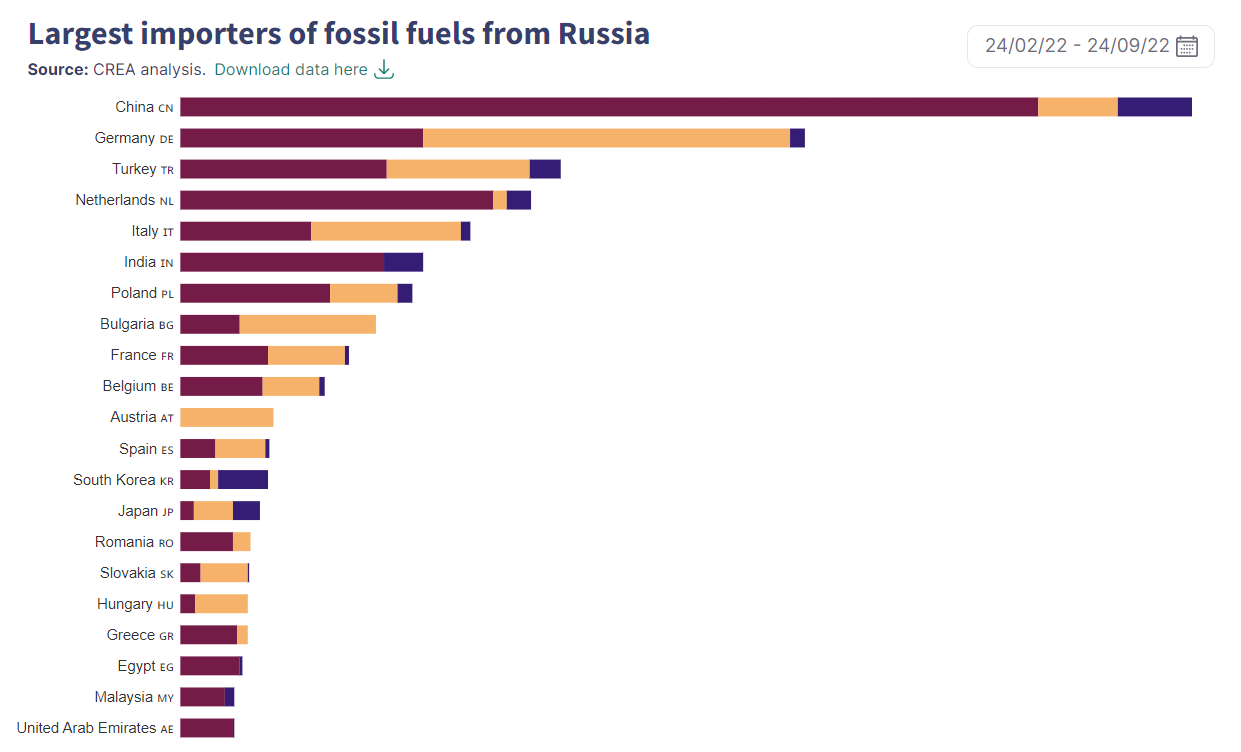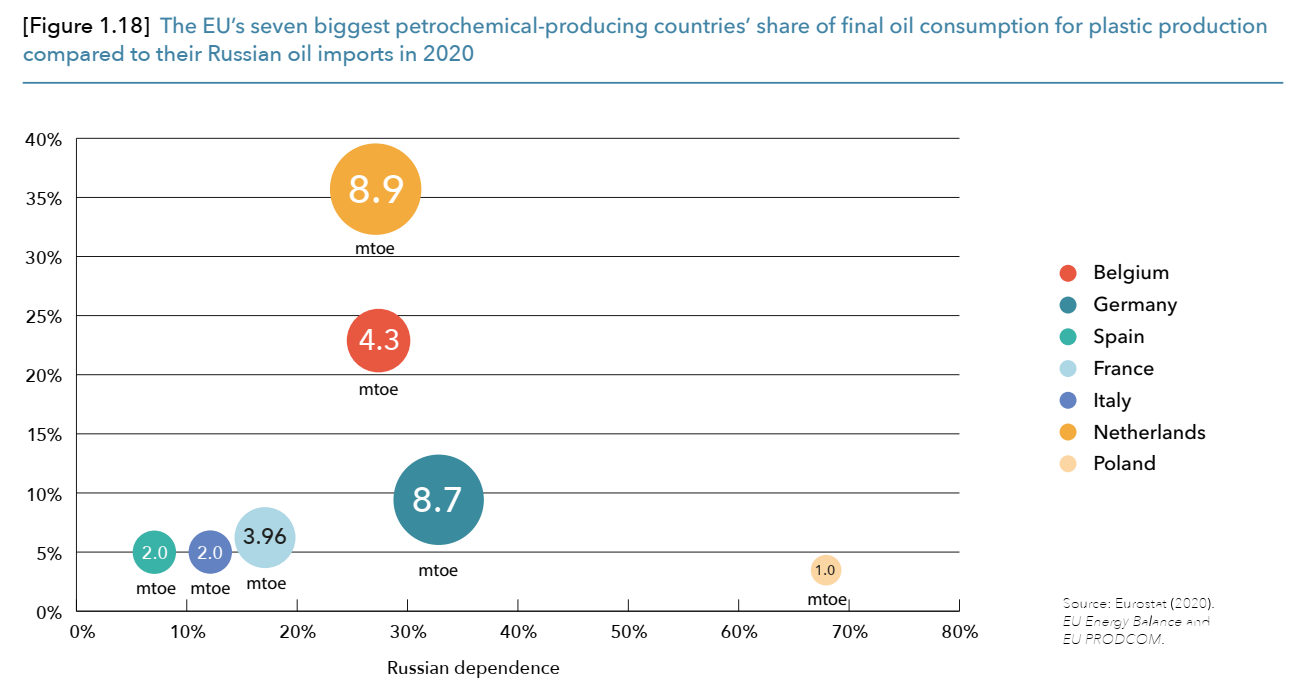According to an analysis recently presented by the Centre for International Environmental Law (CIEL) plastic production was responsible for respectively nearly 9% and 8% of the EU’s final fossil gas and oil consumption in 2020. This is about as much as the final gas consumption in the Netherlands and almost as much as the final oil consumption of Italy in 2020. The EU's seven biggest oil- and gas-consuming countries for plastics production are the Netherlands, Belgium, Germany, Spain, France, Italy and Poland. They are also responsible for 77% of all plastic packaging waste in the EU.
Who is both trashing the planet and sponsoring Russian aggression?
The Netherlands is now the biggest buyer of Russian oil in the EU, second only to China globally. The largest industrial sector that generates demand for Russian oil in the Netherlands and the EU at whole is production of plastics and petrochemicals.

Source: http://www.russiafossiltracker.com, CREA
As CIEL shows in its report “Winter is coming: plastic has to go”, 36% of the Netherlands’ final oil consumption, 23% in Belgium, and 9% in Germany was used for plastic production in 2020.

Source: CIEL report “Winter is coming: plastic has to go”.
The Netherlands and Belgium also have the largest percentage of the total final consumption of fossil gas going into plastic, with nearly a fifth of their final consumption of gas going to its production. Of this gas, 17% could be attributed to Russia for Belgium in 2020, and 26% for the Netherlands.
Phasing out fossil fuel intensive production of non-essential goods, many of which should have been banned long ago for the sake of public health and the environment, is one of the key sources of oil demand destruction for EU member states.
Looking at only packaging, a 50% plastic packaging prevention target together with a 90% recycling rate would save 6.2 bcm of gas, and 8.7 million tonnes of oil in 2030 compared to the 2020 final consumption, the equivalent to the Czech Republic’s final oil and gas consumption in 2020. This would decrease climate impacts and increase the EU’s energy security.
Considering their plastic pollution prevention and fossil fuel demand destruction potential, the priority should be given to policy measures and industrial strategies focusing on eliminating all unnecessary plastic use through the redesign of products and upscaling of reuse systems.
The only answer to the triple energy, climate, and plastic pollution crises that the world is facing lies in a substantial reduction of fossil fuels usage – including non-essential items made of oil and gas, such as a large share of our plastic products and packaging. To complete some of these goals, the European Commission has started a big demand reduction initiative in the EU for gas but is still ignoring one of its biggest untapped potentials: petrochemicals and plastics production.
Additional measures to cut demand for Russian oil
Reducing the demand for oil will ease the global energy crisis and will lead to lower prices, benefiting the European economies, lowering their GHG emissions and contributing to effective dismantling of Russia’s key revenue stream. However in practice, most of the measures to reduce oil demand, that were recommended by IEA back in March in “10-Point Plan to Cut Oil Use”, still lack both legislative action and implementation in EU member states. If fully implemented by advanced economies, IEA’s plan could cut global oil demand by 2.7 million barrels a day – more than a quarter of Russia’s current oil exports.
Proposed measures include: reducing speed limits on highways; working from home up to 3 days; introducing car-free Sundays in cities; expanding public transport, walking and cycling; alternate car access to roads in cities; increasing car sharing and reducing fuel use; promoting efficient driving for trucks; using existing high speed rail and night trains; reducing business flights; facilitate adoption of EVs and more efficient vehicles.
Both conservative experts and campaigning NGOs point to the transport sector as a necessary area for policy intervention. According to analysis by Greenpeace short-term measures in the transport sector could cut the EU’s oil consumption by 40 million tonnes and allow Europe to slash 28% of Russian oil imports. The measures would also reduce the EU’s greenhouse gas emissions by 144 million tonnes annually, equal to 93 million cars, accelerating the decarbonisation of the transport sector, which causes more than a quarter of the EU’s total greenhouse gas emissions.
The ‘REPowerEU’ strategy includes no measures to immediately implement oil demand reductions despite aiming to achieve a 5% reduction in short-term oil and gas demand. According to an assessment by Transport & Environment, the strategy lacks detail on how measures to accelerate fleet electrification will be designed or how ambitious they will be. As it stands, REPowerEU will do little to prevent a simple shift from dependence on Russia to dependence on Saudi Arabia.